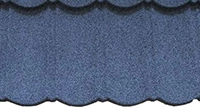
Bond
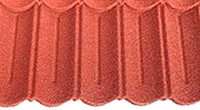
Heavy Dirty Bond

Classic
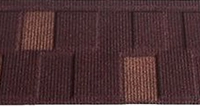
Shingle
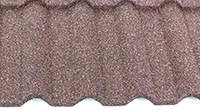
Milano
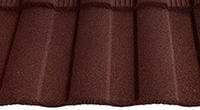
Roman
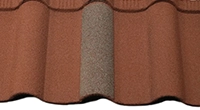
Groove

Makuti Grained

Slate
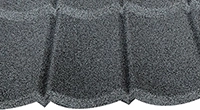
Lengthened

Roof Accessories
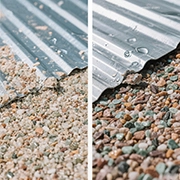
Roof Grade
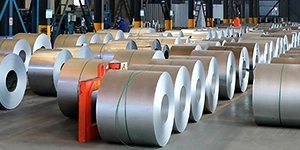
Steel Coils

Corrugated Roofing Sheets

Corrugated Steel Sheet
Thinkness/ mm: 0.4
Panel size/ mm: 1340*420
Effective size/ mm: 1270*370
Coverage Area/ m²: 0.47
Panels, pcs/ m²: 2.13
Weight, kg/ m²: 5.64
Quality inspection: ISO9001; COC; CE; SGS standard
Roof Stone Tiles are an innovative roofing material made by combining a high-strength metal base with natural stone granules. They offer a unique blend of lightweight construction, long-lasting durability, and eco-friendly performance. Thanks to these advantages, they are widely applied across a variety of building types and roofing projects. Below are their key features and typical application areas:
Core Features of Roof Stone Tiles
1. Lightweight with Exceptional Strength
Weighing only 6–7 kg per square meter—just one-sixth the weight of traditional clay or cement tiles—this roofing material greatly reduces structural load. It's especially ideal for retrofitting old buildings or use in earthquake-prone areas.
The base layer is made of high-quality aluminized zinc steel, offering outstanding impact resistance, corrosion protection, and a service life of 30 to 50 years.
2. Superior Weather Resistance and Safety
Engineered to withstand harsh weather conditions, it remains stable in environments ranging from -30℃ to 70℃. It can resist hail, heavy snow, and strong winds up to level 12 or 120 MPH. Certified with a Class A fire rating, the tile is non-combustible and safe.
Its unique interlocking system and horizontal nailing technique improve overall wind and seismic resistance, effectively preventing dislodgement during storms.
3. Elegant Appearance and Eco-Friendly Design
The surface features natural basalt stone granules in vibrant, UV-resistant colors that won’t fade over time. It offers the natural texture of stone combined with the sleek finish of metal, providing a wide range of aesthetic options.
Made from 100% recyclable materials and produced through a pollution-free process, it fully meets green building standards.
4. Easy and Efficient Installation
Flexible and easy to cut or bend, this roofing solution suits roof slopes from 15° to 90°. It can be installed directly over existing tiles, minimizing construction waste.
With dry installation and only 4 to 6 nails needed per tile, it saves both time and labor, making it a cost-effective choice for contractors.
5. Enhanced Functional Performance
This tile offers excellent soundproofing—reducing rain noise by up to 30%—and better thermal insulation than standard color steel sheets, greatly improving indoor comfort.
Its advanced multilayer waterproof coating system ensures superior leak resistance, making it ideal for humid and rainy climates.
Application Scope of Roof Stone Tiles
1. Residential and Villa Projects
Ideal for self-built homes, villas, townhouses, and other residential buildings—especially for rural revitalization or “flat-to-slope” roofing renovations. Combines aesthetic appeal with practical durability.
2. Public and Commercial Facilities
Widely used in large-scale public buildings such as shopping malls, libraries, museums, schools, and hospitals. Also suitable for high-end commercial spaces like corporate offices, clubs, and cultural centers.
3. Rural and Western Regions
Perfect for rural housing upgrades in beautiful countryside construction projects. Designed to withstand strong winds and extreme temperature differences, particularly in western regions—minimizing common issues like leaks and broken tiles.
4. Industrial and Temporary Structures
Applied in factories, warehouses, steel-framed buildings, and rapidly built structures like construction site housing or prefabricated homes, where fast installation and structural efficiency are essential.
5. Historical Building Renovation
An excellent solution for restoring old roofs without removing the original layer. The tiles can be installed directly over existing surfaces, reducing labor costs and significantly shortening construction time.
Precautions
High initial cost: Although the long-term cost performance is better than that of traditional tiles, the initial investment needs to be comprehensively considered.
Special climate adaptation: The coating process should be selected based on the regional climate (for example, high-strength cold-rolled steel base materials are used in the west).
Low maintenance requirements: Regularly check the firmness of the nails and rinse them with clean water to keep the surface clean.
Roof Stone Tiles, with their comprehensive performance, have become an ideal alternative to traditional tile materials in modern architecture, especially excelling in high durability, environmental friendliness and adaptability to complex climates.